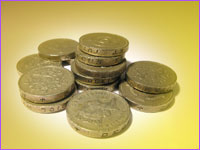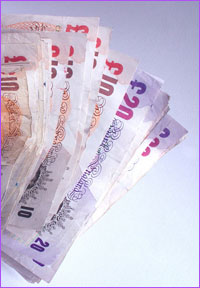Travel budgets
The PA often has to plan dozens of business trips but is rarely given the opportunity to actually experience what she is buying. It is necessary to rely on feedback and requests from the travellers themselves when booking flights, hotels and ground transportation.
 Travel budgets are usually prepared up to a year in advance, long before the
airlines have confirmed their lowest fares for a given flight and months ahead of hotels restructuring their room rates to reflect variations in demand. Preparing a travel budget and keeping to it requires much juggling and there must be room for manoeuvre.
Travel budgets are usually prepared up to a year in advance, long before the
airlines have confirmed their lowest fares for a given flight and months ahead of hotels restructuring their room rates to reflect variations in demand. Preparing a travel budget and keeping to it requires much juggling and there must be room for manoeuvre.
Take a look at the main booking tools on the internet such as opodo.com, expedia.com and telme.com. Flight and hotel rates vary dramatically and fluctuate with currency conversion rates from one day to the next. An efficient travel management company (TMC) will be ahead of the game and able to secure the best rates available at the time of booking. If the PA can identify a better rate the TMC should be advised accordingly.
Watch out for cancellation policies, as the cheapest fares and rates invariably come with large penalties when the traveller’s requirements change.
Many travel authorisation forms require a breakdown of costs and this should show a simple breakdown for each aspect of the trip.
| Breakdown of costs |
| Flights |
| Hotel rooms |
| Meals |
| Incidentals |
| Entertainment |
| Ground transport/Parking |
| Car hire |
The total cost and the individual elements of the form should be checked alongside the corporate travel policy, if there is one in place. Again the TMC often monitors this as part of its ongoing contract.
 Nearly half of hotel bookings are decided upon according to the price. Ask whether the rate quoted includes breakfast and all taxes. If booking on the internet, print off a copy of the confirmation and the voucher if necessary. Highlight the room rate and what is included in order that the traveller may be ready for any discrepancy when checking out. Many of the lowest rates require payment at the time of booking. A voucher is then issued as proof of payment. Ensure that the traveller takes this with them and hands it over when checking in.
Nearly half of hotel bookings are decided upon according to the price. Ask whether the rate quoted includes breakfast and all taxes. If booking on the internet, print off a copy of the confirmation and the voucher if necessary. Highlight the room rate and what is included in order that the traveller may be ready for any discrepancy when checking out. Many of the lowest rates require payment at the time of booking. A voucher is then issued as proof of payment. Ensure that the traveller takes this with them and hands it over when checking in.
When studying air fares, confirm whether taxes and handling fees are included or not. A recent comparison of flights from London Gatwick to Edinburgh showed easyJet charging £44 return plus £10 tax. Similarly timed flights with BA on the same route, showed one way fares of as little as £11 . Additional charges amounted to a whopping £42.
Long haul flights show even bigger differences. Making a transfer connection during the journey often causes a dramatic escalation in the price. Look at air fares to Canada, via the United States and airport taxes, surcharges and handling fees can increase what looks like a low fare by over 30%.
Arguing about inflated costs and going over budget after the trip is a waste of time and money. It is sensible to get the price right and agreed at the authorisation stage.
A recent survey indicated that 63% of business travellers believe they will use low cost carriers over the next six months. It was also indicated that, if low cost airlines increase their flights to the popular business orientated airports, they would be used even more. The best fares are usually only available to those who book well in advance. Planning too far ahead has its drawbacks and so it is wise to allow for changes and the fees incurred by them in the authorisation form, at the initial planning stage.
Subsistence and incidentals are generally outside the PA’s or administrator’s control. Laundry, drinks from mini bars, newspapers, room service and health spa facilities are all costs which appear on a hotel’s invoice. If the hotel provides a bill without a breakdown of costs there should be room on the expense sheet completed by the traveller for incidentals, such as these items to be listed.
The company travel policy should indicate which incidentals are permissible and all charges on an expense sheet should be transparent, to ensure that they are within the policy.
| Travel budget checklist |
| Check if taxes are included in room rates |
| Check if taxes are extra charges are included in air fares |
| Request the breakdown the costs of ‘extras’ on expense sheets |
| Ensure that car hire quotes are net |
| Remember that room rates quoted are plus service |
| charge, plus room tax, plus VAT. |
| Ensure that all costs to be incurred are on the authorisation form |
Graeme Payne has trained on travel related subjects in over 60 countries around the world and has worked with hundreds of major companies, airlines and government departments to ensure that they manage their travel effectively. He currently writes for a number of travel magazines in UK and USA and is author of the annual International Luxury Travel Market catalogue. In 2004 he is working in India, Thailand, Morocco, Spain and Canada, researching leisure and business travel for a number of guides used by travel agents and corporations.












